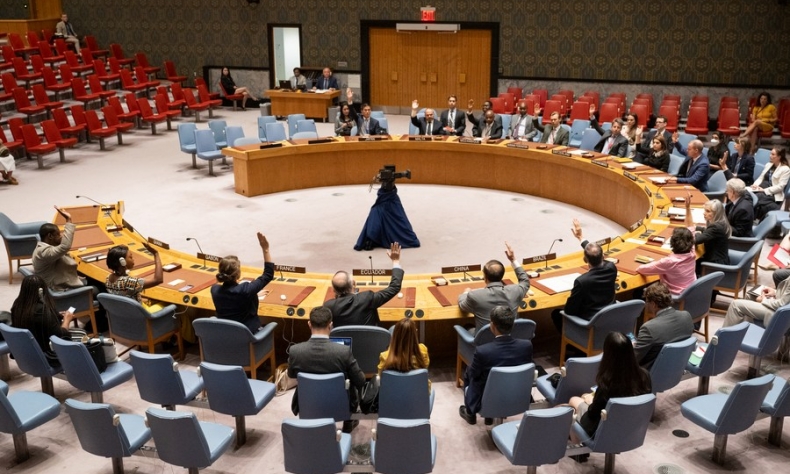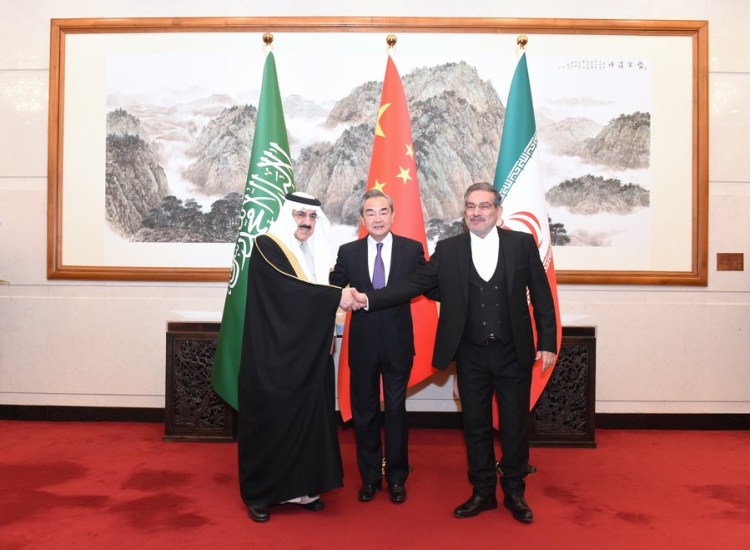Global Security Initiative: The Chinese Solution Contributes to Global Security

The Global Security Initiative offers a way toward reshaping the world on the basis of universal security and securing a lasting peaceful global community.
In April 2022, Chinese President Xi Jinping proposed the Global Security Initiative (GSI), calling on countries to adapt to the profoundly changing international landscape in the spirit of solidarity, and address the complex and intertwining security challenges with a win-win cooperation mindset.
The Global Security Initiative is a concrete embodiment of the concept of building a community with a shared future in the realm of security. The GSI derives from traditional Chinese culture and is based on the practice of major-country diplomacy with Chinese characteristics. As a Chinese solution to the global security dilemma, the initiative aims to promote world peace and stability.
Since the founding of the People’s Republic of China, China has been adhering to an independent and peaceful foreign policy in international relations. China firmly upholds the path of peaceful development, which has created a stable environment for China’s reform and opening up as well as steady progress of China’s modernization over the past decades. However, the path of peaceful development faces more challenges and uncertainties today.
At present, the world is neither peaceful nor tranquil, with hotspot issues of regional security arising one after another. Due to the Ukraine crisis, Europe’s security situation once again draws global attention. The threat of unilateralism, hegemonism, and power politics has been on the rise, while the deficits of peace, security, trust, and governance have continued to grow, and the security challenges facing human society are becoming more complex and intractable.
It is within this environment that President Xi put forward the Global Security Initiative from the perspective of the future and destiny of all humanity. In a systematic way, the GSI answers the question of what kind of security concept the world needs and how countries can achieve common security. It aims to eliminate the root causes of international conflicts, improve global security governance, and encourage concerted efforts to bring greater stability and certainty to a volatile and changing world.
First, the GSI advocates for common security while rejecting the notion of divided security. It emphasizes the reasonable security concerns of all countries and believes that humanity is a closely connected security community, where one country’s security should not impair that of another. The concept of common security advocates that countries should pursue their own security while also considering the security of others, achieving a sense of common security. This concept underlines that in the international community, no country’s security can exist in isolation, and only common security can be sustainable and stable. Common security, based on a commitment to common survival, pursues the security of the entire international community while rejecting hegemonic security and equilibrium security.
Second, the GSI emphasizes achieving security through dialogue and consultation. War and sanctions are no fundamental solution to disputes; only dialogue and consultation are effective in resolving differences. It calls on countries to strengthen strategic communication, enhance mutual trust, defuse risks and ease tensions, manage disputes, and eliminate the root causes of crises.

As the initiative proposes, major countries should uphold justice, fulfill their due responsibilities, support consultation on an equal base, facilitate talks for peace, and play the role of the mediator in regional security issues. Likewise, the international community should support all efforts toward the peaceful settlement of crises, and encourage all parties in a conflict to build trust, settle disputes and promote security through dialogue.
Third, the GSI advocates the genuine practice of multilateralism rather than forming exclusive political blocs. The current international order dominated by the United States has a series of problems, including Cold War mentality, the establishment of exclusive political “small groups”, the practice of double standards under the guise of “rules”, and the use of hegemonic behavior under the pretext of “democracy”.
China’s Global Security Initiative is a response to these problems and an overcoming of Western security concepts based on geopolitics. It calls on all countries to practice true multilateralism; firmly uphold the international system with the UN at its core, the international order underpinned by international law and the basic norms of international relations underpinned by the UN Charter, and the authority of the UN and its status as the main platform for global security governance.
Finally, the Global Security Initiative attaches importance to the intrinsic link between security and development, viewing global common development as an essential pathway to achieving global common security. The initiative emphasizes that the two are mutually reinforcing, with development fostering stability and security, and security enabling sustainable development. This is to say, China places significant emphasis on the correlation between peace and development, recognizing that they are essentially two sides of the same coin.
The new security architecture advocated by China aims to foster a secure environment not only for the country’s own development but also for global common development, reflecting China’s emphasis and concern for the well-being of developing countries. This approach highlights China’s commitment to promoting a world where security and development coexist in harmony, ensuring that all countries, especially developing ones, can thrive and prosper.
Ultimately, the Global Security Initiative offers a way toward reshaping the world on the basis of universal security and securing a lasting peaceful global community.
Song Fang is a lecturer at the Institute of International Strategic Studies under Party School of the Central Committee of CPC (National Academy of Governance).
The article reflects the author’s opinions, and not necessarily the views of China Focus.
 Facebook
Facebook
 Twitter
Twitter
 Linkedin
Linkedin
 Google +
Google +










